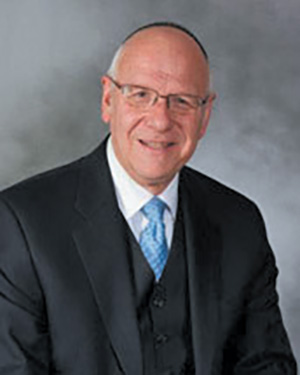
Parshat Devarim
Shabbat Chazon
It is difficult for one to analyze this week’s haftarah in a detached, unemotional fashion. The passionate cry of the navi Yeshayahu reflecting, as it should, the fervent call of Hashem Himself should touch the heart of everyone who understands this most basic prophetic message.
The reading is replete with the complaints that God had against His people, as well as the punishments the nation had already suffered—and those yet to come. God’s rejection of superficiality in His worship, worship which He Himself had commanded, included a dismissal of the sacrificial rite as being “tiresome” to Him, the pilgrimages to the Beit Hamikdash as “trampling My courtyards” and the observance of His festivals as being “hated” by God. And perhaps most shattering is God’s statement that He would no longer listen to the prayers of the people for “your hands are filled with blood.”
But, if sacrifices and holidays are disdained, if prayer and pilgrimage have no effect—then where is the hope for return and salvation?
Yet, this is precisely this point that Hashem hoped to drive home to His nation. Salvation will not come through ritual acts that are followed by rote. The very essence of the ritual is to awaken our recognition of Hashem’s existence and His demands. One who performs these rituals properly undergoes a change of character, becoming more sensitive and aware of God’s presence in our lives and bringing us to a better understanding of the type of behavior He expects from us.
In fact, it is the prophet himself who demands this change with the powerful words: “…purify yourselves, remove your evil deeds from before me and cease your wickedness! Teach goodness, seek justice, vindicate the victim, render justice to the orphan and fight for the widow!” A truly God-fearing individual will find his place among the people—and not isolated from them. The righteous and saintly do not hide in the Temple but go out to battle for their oppressed brethren.
It is this message that we carry with us into Tisha B’Av. Not a message of defeat and destruction. Not a prophecy of doom and despair. Rather, a message of hope. A message of direction. A message reinforcing the simple idea that we must change, we can change and, hopefully, we will change. It is a message that reverberates today as well and has another name.
We call it teshuva!
By Rabbi Neil N. Winkler
Rabbi Neil Winkler is the Rabbi Emeritus of the Young Israel of Fort Lee and now lives in Israel.









